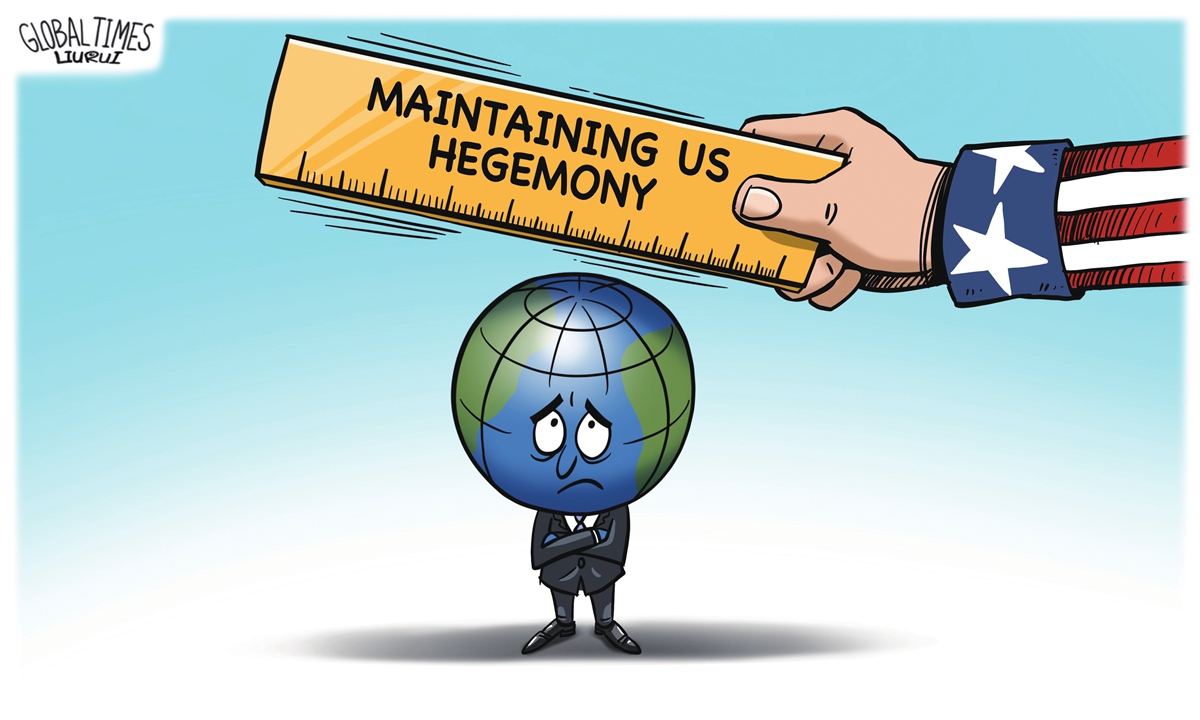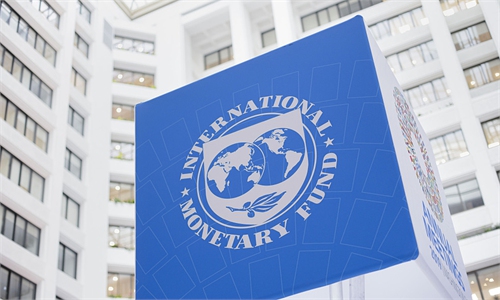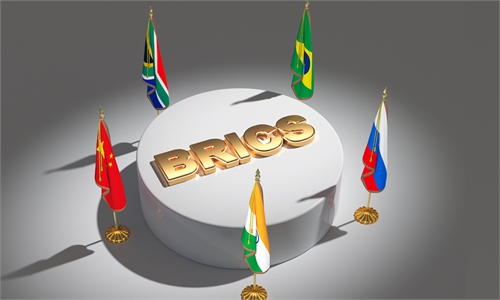
Illustration:Liu Rui/GT
As the BRICS summit will be held soon from August 22 to 24, the chair country South Africa said that it has been receiving applications to join the BRICS mechanism. At present, more than 30 countries have requested to join the BRICS, including many allies of the US and European countries. And there are calls to attend the summit even within the EU. The hegemony system built by the US after World War II is facing the challenge that its allies are decoupling one after another.Twenty years ago, US international relations expert David M. Lampton predicted the fragility of this system: The US tends to conduct bilateral relations with other countries on the basis of the "Christmas tree" approach - hanging all sorts of conditions (oftentimes very minor or petty issues) as a price for other countries to pay for the continuation of normal, bilateral relations. The interest chain built by such an approach lacks inner cohesive affinity. American hegemony will shatter itself.
Interests within NATO are increasingly divided. NATO is a product of the Cold War. However, it persisted after the Cold War. Over the past few decades, the US has routinely made NATO allies comply with a long list of demands they do not like, some even breaking the bottom line of NATO consensus. For example, the US requires NATO to pay for Japan's defense. At a time when geopolitical tensions are rising in Europe, NATO countries should first consider how to guide Europe's security and maintain peace, rather than tying themselves to the US chariot, fomenting strife in East Asia."Bidenomics" goes against EU trade principles. Recently, the Biden administration of the US announced "Bidenomics" for its re-election campaign, and its proposals for international trade undoubtedly increased the differences between the US and the EU.
First, there are huge differences between the US and the EU on how to view China. "Bidenomics" believes that China is no longer the main partner of the US, but the main "threat." China accounted for 60 percent of last year's sales, two-thirds of production and three-quarters of battery manufacturing. From the perspective of the US, this "unhealthy dependence" must be reversed. The EU, on the other hand, still regards China as a lucrative export market and actively seeks expanding economic and trade cooperation with China.
Second, as for whether to use the "national security" guise to interfere with economic issues or not, the US also has created a divergence with the EU. The US imposed export controls on chips to China in last October. The "Bidenomics" emphasizes to move key supply chains out of countries including China and Russia. Meanwhile, the Biden administration increasingly stresses the "friend-shoring." However, the EU clearly has different views on related issues.
India will not follow suit with the US either. India has been favored by the US in recent years, but it definitely doesn't mean that there is no grudge or suspicion between the US and India. The US and India share common strategic assessments and concerns about China. For the US, India is clearly an important part of building a strong Asian supply chain that excludes China. However, in terms of strategy, India intends to seek more benefits for itself rather than simply follow the US' lead.
Since the beginning of the new century, the rise of developing countries has changed the global power structure, providing new interest options. More and more developing countries hope that their voices can be heard, their interests can be respected, and their demands can be responded to. However, the current global governance structure dominated by the US and Europe cannot meet the requirements of developing countries, so the BRICS mechanism emerged. Recently, the BRICS have put forward some specific propositions such as de-dollarization, which not only reflects the determination to promote the reform of global governance, but also gives other countries more choices.
The US has been trying to establish "micro-multilateralism" since the end of the Cold War -providing security, political and economic support to a small number of core allies such as the UK, Germany, and Japan, but did not do well in how to provide more commitment from a broad group of partners. In particular, the US Congress has never liked the joint approach of multilateralism and opposed the government making more promises and transferring more power.
Although the US National Security Advisor Jake Sullivan recently repeatedly called for greater patience and confidence to establish a "world structure that requires 'concrete commitments' among all allied economies," all of US' allies know that what he said is that the US must be trusted. However, the premise of making such a request is that the US has enough time and sincerity to meet the requirements of its allies, but this is obviously not realistic. For the allies of the US, the most correct choice is to follow the trend of the history and stand on the right side of human progress.
The author is professor with School of International Relations and Diplomacy, Beijing Foreign Studies University. bizopinion@globaltimes.com.cn



